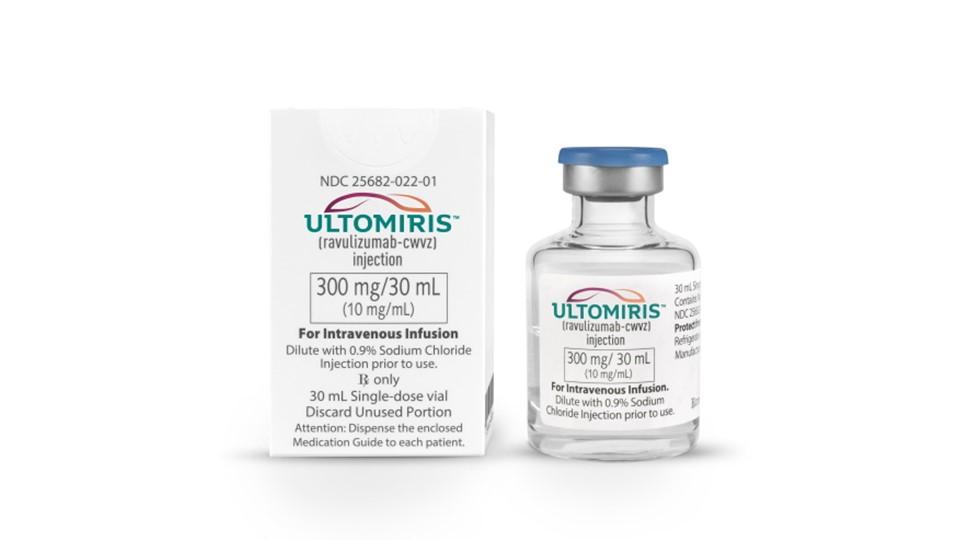At second ask, FDA clears AZ’s Ultomiris for NMOSD

AstraZeneca’s Ultomiris has been approved by the FDA to treat rare autoimmune disease neuromyelitis optica spectrum disorder (NMOSD), six months after an earlier application was turned down, with a request for changes to the risk evaluation and mitigation strategy (REMS) for the drug.
The extension of the indications for Ultomiris (ravulizumab) to include adult patients with anti-AQP4 antibody-positive NMOSD – which accounts for around three-quarters of the approximately 6,000 cases in the US – means that the long-acting complement C5 inhibitor is now FDA-approved for all the indications on the label of predecessor Soliris (eculizumab).
That’s an important milestone for AZ’s Alexion division, as it is trying to position Ultomiris as a replacement for Soliris, which is due to lose patent protection and face biosimilar competition in the US in 2025. The company has been working hard to switch patients over to Ultomiris, which has the advantage of needing an infusion every eight weeks, versus two weeks for Soliris.
The approach is working, with sales of Soliris slipping 14% to $3.1 billion last year, while Ultomiris grew more than 50% to just under $3 billion overall, overtaking Soliris in the fourth quarter. Both drugs are also approved to treat paroxysmal nocturnal haemoglobinuria (PNH), haemolytic uraemic syndrome (HUS), and generalised myasthenia gravis (gMG).
In its earlier complete response letter (CRL), the FDA had asked AZ to modify its REMS to require a check on patients’ meningococcal vaccination status or prophylactic administration of antibiotics before treatment with the drug, citing evidence that meningococcal vaccines may provide incomplete protection against invasive meningococcal disease in people receiving Soliris and Ultomiris.
The efficacy of the drug was not in question, with evidence from the phase 3 CHAMPION-NMOSD trial showing that Ultomiris was effective in reducing relapses compared to placebo over 73 weeks’ follow-up.
Ultomiris was compared to an external placebo arm from the pivotal Soliris PREVENT trial in NMOSD, showing a 99% reduction in relapses at that time point, with zero seen in the active treatment group.
In NMOSD, auto-antibodies attack the central nervous system, including the spine and optic nerves, causing symptoms such as vision problems, weakness and paralysis in the limbs, painful spasms, and numbness or loss of sensation throughout the body. It is characterised by unpredictable relapses in which symptoms worsen.
Ultomiris is also approved for NMOSD in Japan and the EU, and regulatory reviews are ongoing in additional countries, said AZ.
Other FDA-approved NMOSD therapies include Horizon Therapeutics’ CD19-directed cytolytic antibody Uplizna (inebilizumab) and Roche’s IL-6 inhibitor Enspryng (satralizumab), which have both been on the US market since 2020.











